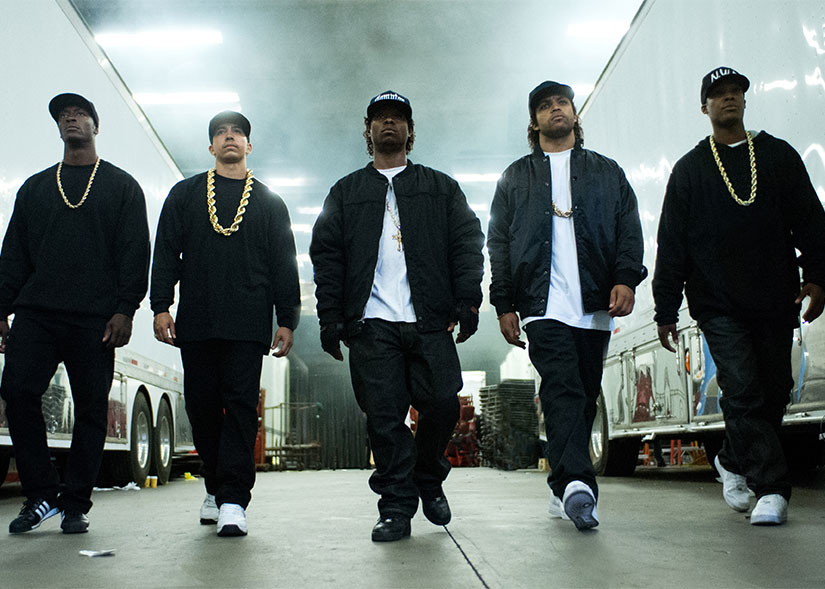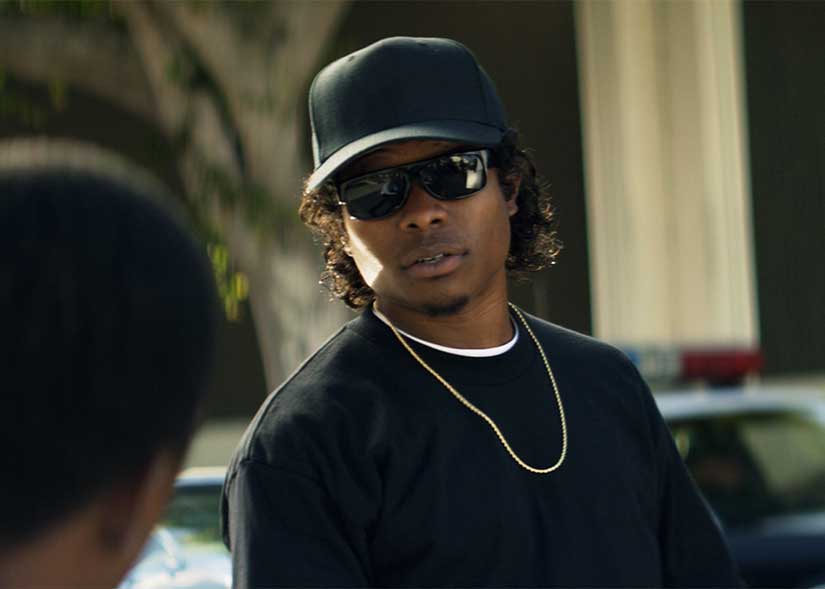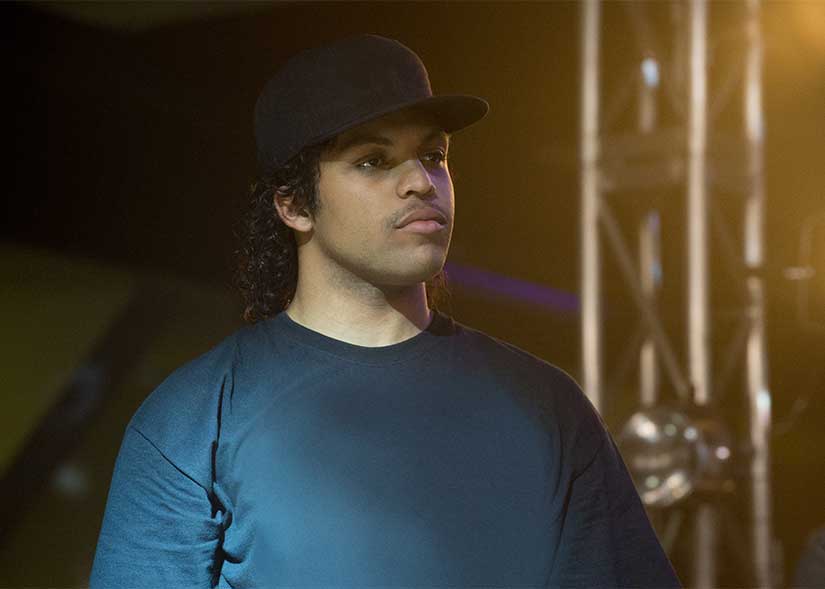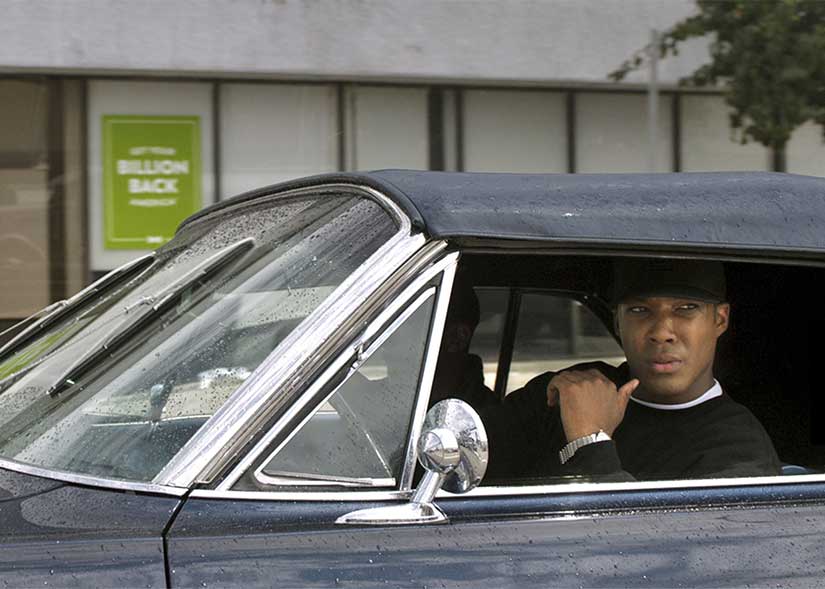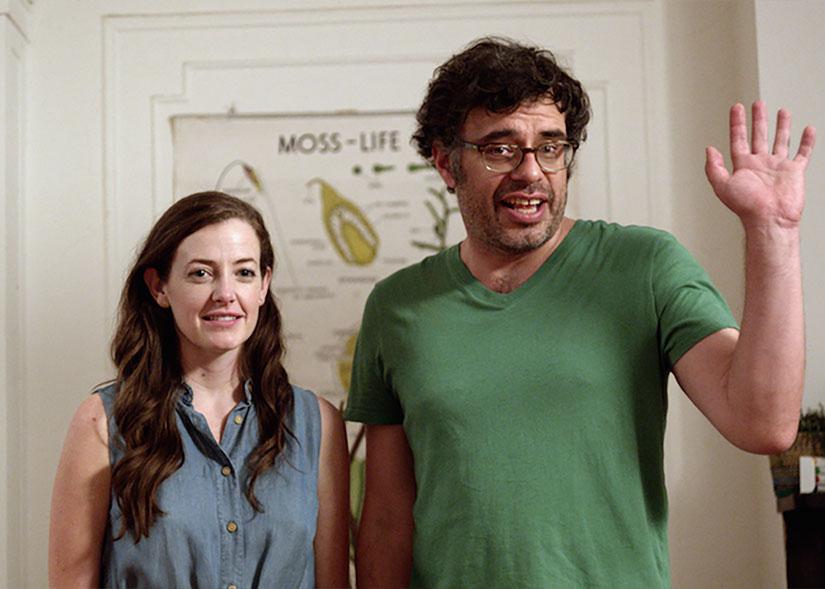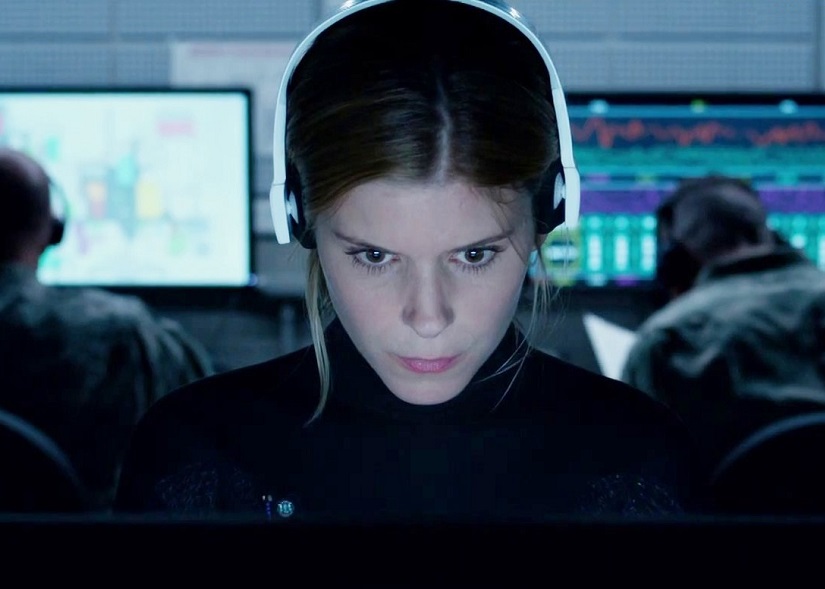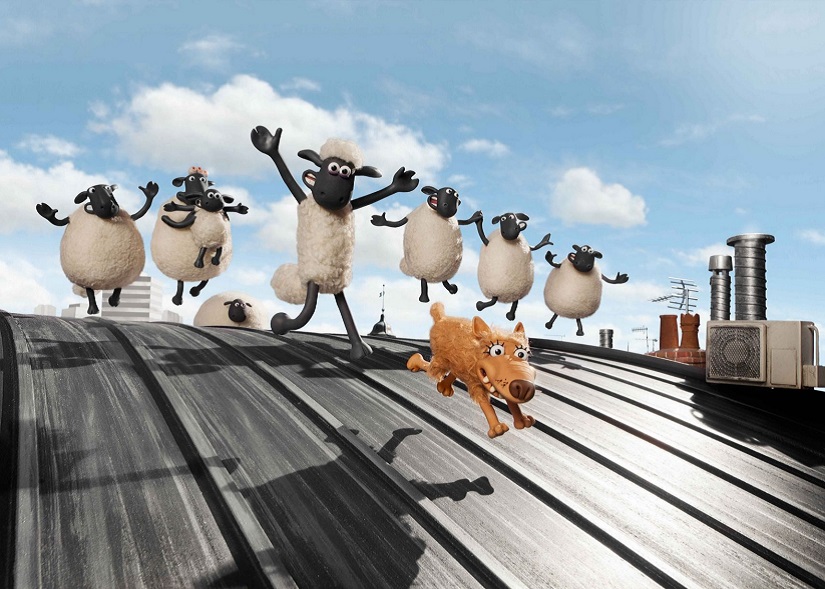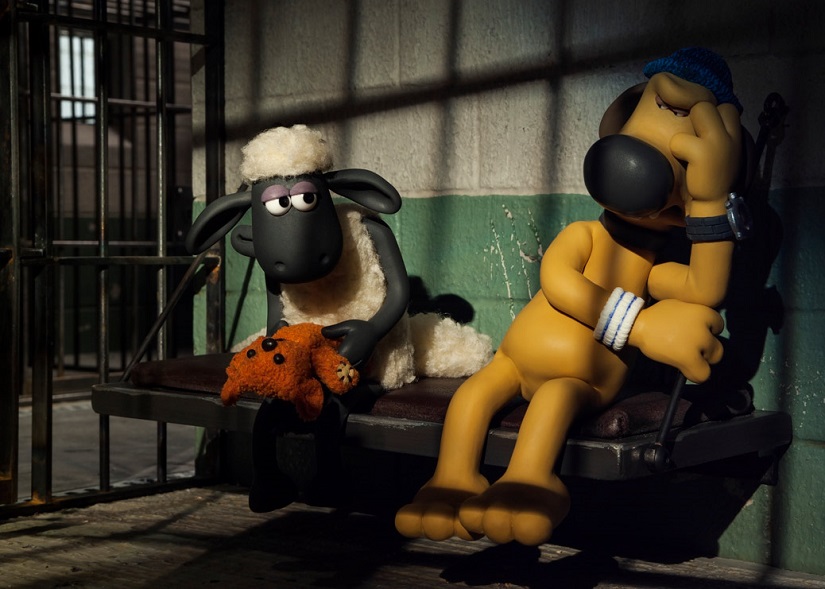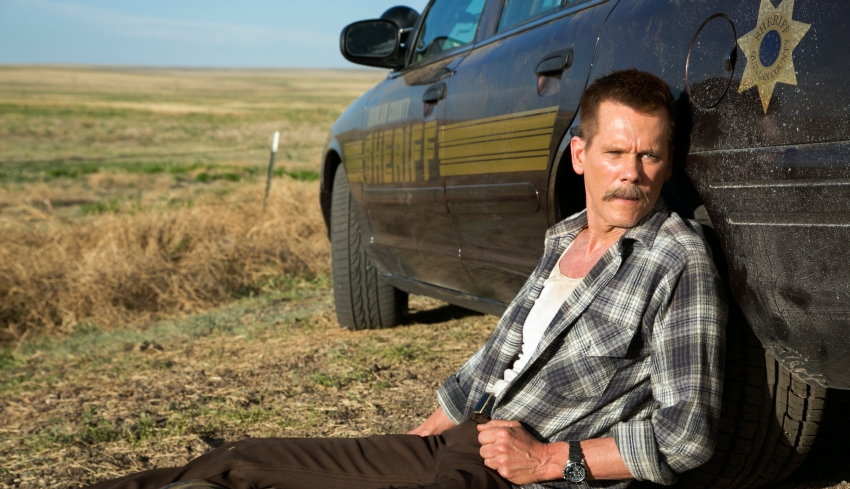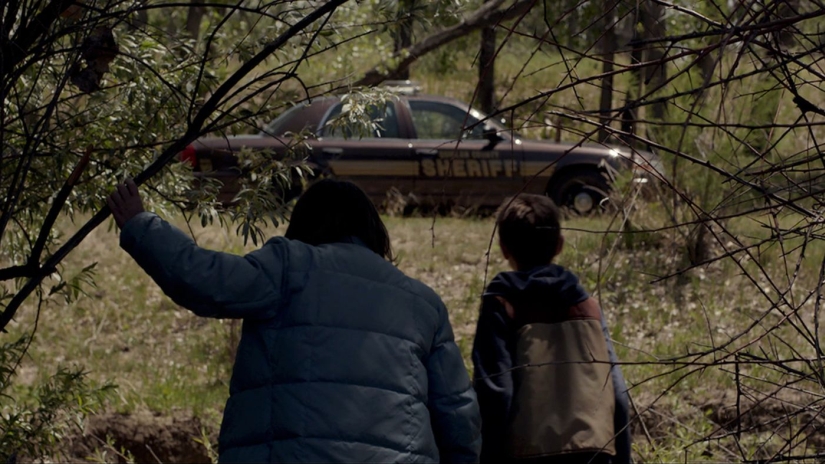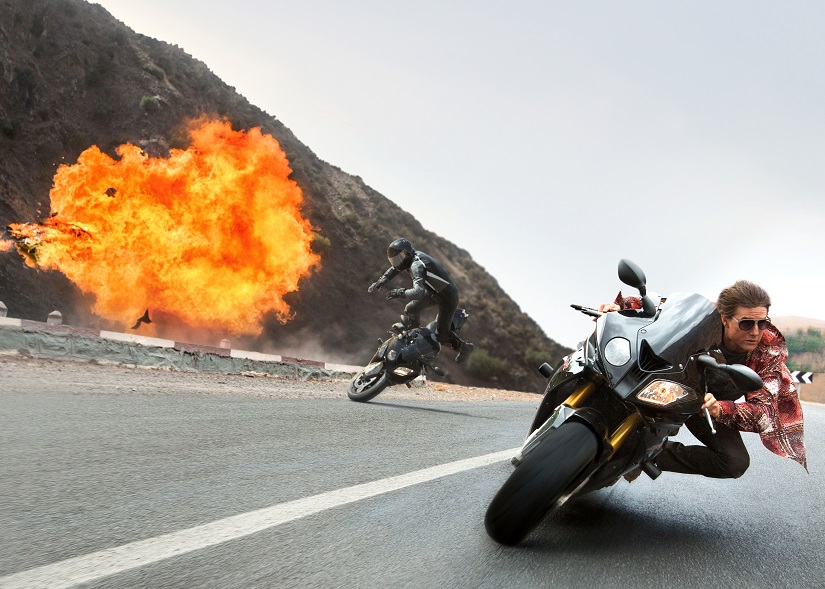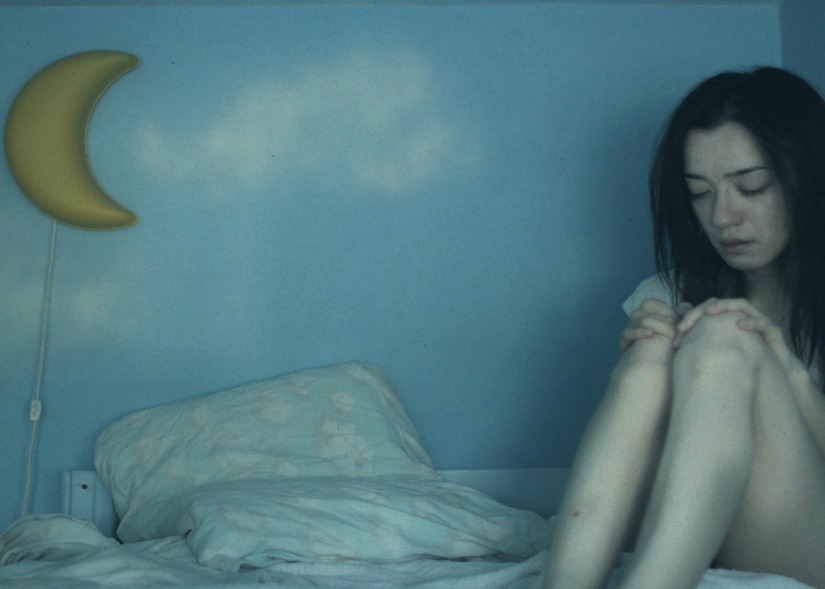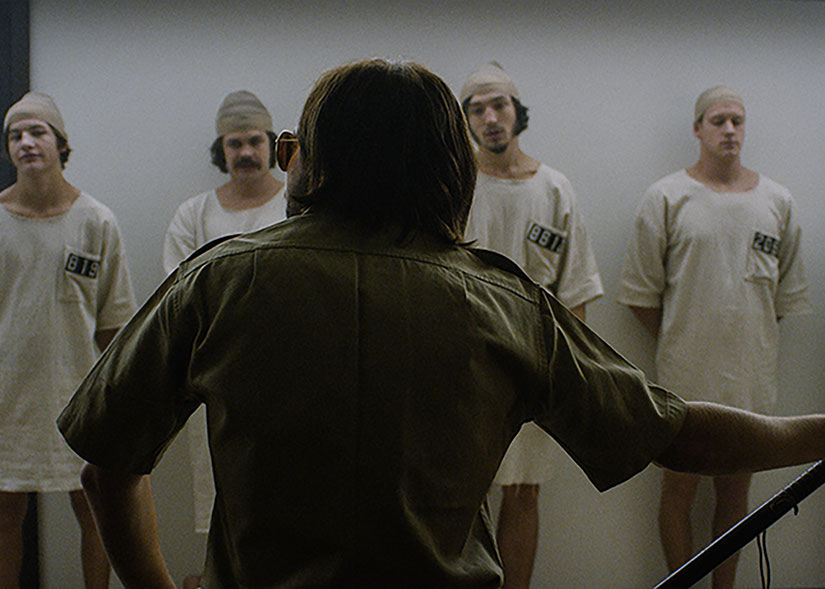[Review] Straight Outta Compton
Music biopics are tricky behemoths to tame because of the struggle to properly portray the cultural significance/relevance of the artist that necessitated the biopic's development in the first place. However, for better or worse, Straight Outta Compton comes at the perfect time when the acts of police brutality that inspired and led to the formation of N.W.A back in the '80s is front and center in the media today.
[youtube id="OrlLcb7zYmw"]
Straight Outta Compton
Director: F. Gary Gray
Rating: R
Release Date: August 14, 2015
Straight Outta Compton begins in the mid-'80s just prior to the formation of N.W.A as the audience is introduced to Eazy-E (Jason Mitchell), Ice Cube (O'Shea Jackson, Jr.), and Dr. Dre (Corey Hawkins) separately, eventually tying the three together alongside MC Ren (Aldis Hodge) and DJ Yella (Neil Brow, Jr.). From the mid-to-late '80s, the film depicts N.W.A's early success, their first tour with manager Jerry Heller (Paul Giamatti) calling the shots... with his and Eazy-E's best intentions in mind. The dynamic shifts, however, when Ice Cube and Heller clash over money, leading to Ice Cube's departure and the beginning of N.W.A's demise.
Before long, each member goes their own way as Ice Cube's solo career begins to take off and his transition to films, Dr. Dre's formation of Death Row Records with Suge Knight (R. Marcus Taylor) leads to his successful solo debut, The Chronic, and his collaborations with Snoop Dogg (Keith Stanfield) and Tupac Shakur (Marcc Rose), and Eazy-E's desperate attempts to keep his Ruthless Records alive while he begins to suffer from the early symptoms of HIV.
Straight Outta Compton works on multiple levels that will appeal to nearly everybody. Whether you're a fan of N.W.A, rap, or each rapper's careers, you'll appreciate the insight on N.W.A and the landscape of rap in the '80s. In saying that, the film deals with the not-so subtle attack on the music industry and its shady dealings that are just as prevalent nowadays as it was nearly 30 years ago.
More importantly, Straight Outta Compton doesn't censor itself or the acts of police violence that led to the inception of N.W.A. And as unfortunate as it may be, the film's depictions of said acts of police brutality are very reminiscent of what we as a country have been facing in recent years. There's one poignant scene in which Heller attempts to protect the group from racial profiling outside the studio, but must see first-hand the disrespect cops give to black people.
However, the entire film isn't entirely grim. There are legitimately funny scenes scattered throughout the film, typically involving the interplay between the actors. For a music biopic that deals with such a serious topic, it was good to see Straight Outta Compton embrace some fun moments to break the tone from time to time in an effective manner.
Straight Outta Compton is strongest when Jackson, Jr, Mitchell, and Hawkins can share screen time and build off of the interplay between one another. However, as they begin to go their separate ways, the film attempts to follow along with them individually, losing the chemistry that made them so appealing to begin with. Because of this, the film begins to lose focus as the final act begins.
With Dr. Dre, Ice Cube, and Eazy-E's widow, Tomica Woods-Wright, co-producing, Straight Outta Compton may be the most definitive look at N.W.A's early days and its eventual dissolution. F. Gary Gray was the perfect director to handle the film as he treats its subjects with reverence. Straight Outta Compton is Gray's return to grace following his latest films, 2009's middling Law Abiding Citizen and 2005's disappointing Be Cool.
Whether you're interested in the musical aspects of the film, its damning social commentary on police brutality, or just approaching with curiosity, Straight Outta Compton is worth an opening weekend trip. Despite a final act that loses its way, Straight Outta Compton is the music biopic the genre needed to elevate its level of quality. Make sure you don't miss it.
[Review] People, Places, Things
This review is being re-posted to coincide with the film's VOD and theatrical release.
In most comedies involving a break-up between parents, the plot tends to naturally vilify the parent opposite of the lead, portraying them as some type of evil entity whom the lead must conquer and triumph over to win. However, this isn't often the case in real life situations, and People, Places, Things does a great job of being an inherently funny film without having to trap its characters in outlandish situations to garner laughs from its audience. However, will that be enough to hold over those who have come to expect such cartoon-like comedies?
People, Places, Things
Director: Jim Strouse
Rating: N/A
Release Date: January 26, 2015 (Sundance), August 14, 2015 (VOD, theaters)
On his twin daughters' birthday, graphic novelist Will Henry (Jemaine Clement) walks in on his wife, Charlie (Stephanie Allynne), cheating on him with another man, Gary (Michael Chernus). A year later, Will is a divorcee living in a small studio apartment in Queens with weekend visitation rights. His depression, while never taking over or defining his character, begins to show through his art and teaching during his classes at the School of Visual Arts. After discovering Charlie is pregnant and intends to marry Gary, Will requests more time with the girls, and is shortly given such time when Charlie drops them off one night. Struggling to juggle his job and responsibilities with the girls, he requests help from his student, Cat (Jessica Williams) and her mother, Diane (Regina Hall). Before long, Cat and Will hit it off, but the allure of reuniting with Charlie and completing their old family dynamic threatens to derail anything new in Will's life.
Like I mentioned earlier, most comedies of this ilk like to pit ex-lovers against one another in some type of competition, but People, Places, Things doesn't go that route. In fact, despite a few disagreements, both Will and Charlie genuinely like each other. Rather than creating a conflict that's person vs. person, People, Places, Things falls more in line with person vs. self conflict, and it could be argued that the film is just as much a coming-of-age film as it is a dramedy. Writer/director Jim Strouse wrote the script with some of his personal anecdotes in mind, which help explain why the script feels so grounded in reality. Despite a solid script with well-crafted jokes, the film wouldn't have worked as well had Clement not been cast in the role of Will.
In a way, People, Places, Things is a bit of a vehicle for Clement as he's able to show off his quick-witted timing and his ability to balance that with drama. Fans of Flight of the Conchords will feel familiar with Clement's witticisms and side jokes, but can also appreciate Will's longing to be a good father.
People, Places, Things is a solid dramedy that serves as a highlight role for Clement. Anybody interested in a realistic comedy that doesn't create villainous caricatures of its characters will be drawn to the film, as well. However, audiences that have grown too familiar with Judd Apatow, Will Ferrell, or Paul Feig films may find People, Places, Things a bit too pedestrian for their tastes.
[Review] Fantastic Four
The name Fantastic Four suggests a certain joie de vivre, a delight in its own comic book silliness. When Marvel's first family were translated to the big screen by Tim Story in 2005, and again for a 2007 sequel, that lightness of touch unfortunately slipped into kitschy smugness, with the excessive focus on camp humour sucking the characters dry of believeable humanity. As oversaturated as the blockbuster movie scene has become with reboots and reimaginings, Fantastic Four presented a worthwhile opportunity for Fox to do right by the characters with the same balance of wit and sincerity which made Joss Whedon's first attempt at The Avengers such a rousing success.
Unfortunately, the studio decided that rather than going for a balanced approach, they would instead push to the opposite extreme, banishing all joy and warmth in favour of something closer in tone to Christopher Nolan's Batman movies. It doesn't take much of a comic book fan to point out that Batman and Fantastic Four couldn't really have much less in common, unless one were to look back to the Bat's loopy silver age incarnation at a stretch (no pun intended, Mister Fantastic). Consequently, this latest Fantastic Four is a movie perpetually at war with itself, unable to reconcile the fun suggested by its title and its characters with the miserable tone the writers inflict upon them.
[youtube id="AAgnQdiZFsQ"]
Fantastic Four
Director: Josh Trank
Rating: PG-13
Release Date: August 7th, 2015
The movie is an origin story to the extent that few movies have been origin stories before. Tim Story's 2005 version pushed through the core character dynamics and roots of the Four's powers in about twenty minutes before starting towards the main smackdown with Doctor Doom. Trank's version dedicates virtually the entire movie to setting the stage for how the characters get their powers and eventually come to terms with them, leaving the ultimate showdown - more or less the only real action sequence - squished into what amounts to little more than ten minutes at the end. In fact, Toby Kebbell's Victor probably gets no more than fifteen minutes' total screentime, with his introduction every bit as rushed as his exit. Considering Doom is supposed to be one of Marvel's most fearsome and complex villains, we're offered little sense of the character beyond a dash of petulance and hints at unrequited feelings for Kate Mara's Sue. Of such meagre ingredients are great supervillains not made.
What we're left with for the remaining 80-odd minutes is a tedious and mostly plotless trawl through a series of events telegraphed so blatantly that even those not spoilt by the trailer or arriving with any knowledge of the comics will have a clear idea where it's heading. It might have worked as a character piece had the characters been given any greater definition than the cursory outlines on show. Reed Richards is the clever one. Johnny Storm is, boom boom, the hotheaded rebel. Sue is, um, a less brilliant version of Reed, with a weird fascination with musical patterns that exists for no other reason than to give her a single, lazily-written scene she can call her own around the midpoint. Ben is Reed's best friend and a bit angsty. Only Reed and Ben give off the faintest sense of humanity, mostly because the movie gives their friendship a little backstory. As for Reed and Sue, they spend what little time they have together making snide comments and being annoyed with each other... so maybe a perfect set-up for a married couple after all.
The script offers nothing to the reasonably talented cast, who flounder trying to create any semblance of chemistry. This is in no small part down to them spending so little time together as a foursome, to the extent that there's little reason to believe Ben has even met Sue until the very end. The familial relationship between the Four is often cited as what makes their superhero team different from others, yet the movie goes to great lengths to keep them apart. Ben departs the story once Reed joins the Baxter foundation, only returning when Reed drunk dials him (not joking) to come along with him, Johnny and Victor on an unsanctioned first journey in their pan-dimensional travel machine, leaving Sue behind. When they return, Victor abandoned, the four are segregated all the way through to the climax, at which point Reed starts talking about the importance of working together even though, as far as viewers are concerned, it seems as though they barely know each other.
The first half of the movie is significantly better than the second - a glimpse of an N64 controller is maybe the highlight of the entire thing - at least feeling as though it is building towards something even if it's patently obvious what that something is. Everything thereafter descends into a disorganised shambles, hitting one or two solid grace notes - an emphasis on the horror of each character's condition is well-played, and Doom's first demonstration of his vaguely defined powers is appreciably nasty, even if the movie has to subsequently forget them to stop him winning too easily - but otherwise spending a lot of time on entirely disposable training montages and grumbles about distrustful governments before hurrying the finale. The CGI is uniformly abysmal, particularly when it comes to Johnny's weightless human torch mode (which seems to cast little to no light or heat in several instances), Doom's melted action figure excuse for a face mask and the Thing, trouserless and dickless throughout, barely matching his mouth movements to his speech.
Its present 9% score on Rotten Tomatoes, lower than Jonah Hex, The Spirit and League Of Extraordinary Gentlemen, puts it among company whose badness is at least interesting, whereas Fantastic Four is merely dull, disjointed and dispiriting. Production troubles may have taken their toll, but it's hard to credit director Josh Trank's claim that his first cut was 'fantastic' when there's so little here that even hints at competence. It's a movie which roots the Thing's catchphrase in childhood abuse suffered at the hands of his older brother, which should tell you all you need to know. Fantastic Four is a series of compounding misjudgments, resulting in a movie ashamed of its own identity and straining to capture a zeitgeist long since passed. At least half the title is honest. It may not be fantastic, but is a 4/10 movie through and through.
[Review] Shaun The Sheep Movie
This review is being re-posted to coincide with its U.S. release.
Aardman's wonderful plasticine productions have never worked quite as well in the cinema as they do on television. In part that's because their television work includes the immaculate The Wrong Trousers, arguably the most perfectly paced and ambitiously staged animated shorts ever produced. And that's to say nothing of the animated trousers, boom boom. Transitioning to the big screen has meant stretching out half-hour plots to feature length, which works against Aardman's strength for creating small, self-contained pieces packed to the brim with exquisite visual punnery and telling stories more through animation than plotting. Chicken Run and Pirates! In An Adventure With Scientist both suffered from meandering stretches, offering enough visual wonder to make a wonderful trailer but not quite so capable at filling in the bits inbetween. Wallace & Gromit: The Curse Of The Were-Rabbit remains their finest cinematic outing to date, in no small part down to the studio's practiced expertise at setting out the rhythms of a story featuring their signature creations and laser-focus on spoofing one specific genre rather than firing in all directions and hoping for a hit.
Shaun The Sheep Movie (not, for whatever reason, Shaun The Sheep: The Movie, but I digress) also derives from one of Aardman's television hits, itself an offshoot of the Wallace & Gromit empire - specifically, the sheep from A Close Shave. The show is aimed at a noticeably younger audience than Wallace and the same is true of the movie. When a movie is classified 'for all ages', generally you can expect it to be aimed at children from, say, 6-12 years old. Shaun is the rare movie which skews even younger, though thanks to Aardman's gift for universal humour and soul-enriching animation, it is more than happy to whisk you back to the halcyon days of childhood even if you find yourself a few decades above the age requirements.
[youtube id="tQvwiOWpj7o"]
Shaun the Sheep Movie
Directors: Richard Starzak and Mark Burton
Rating: G
Release Date: February 6, 2015 (UK)
Growing out of the same formula which guides each of the 7-minute TV show episodes, the movie sees Shaun and his flock eager from a day off from their usual routine and having to escape the watchful eye of their farmer (called, ambitiously, 'Farmer') and his dog, Bitzer. On this occasion, events go a little more awry than expected and Farmer contrives to end up asleep in an out-of-control caravan that takes him to the Big City, where a bump on the head leads to him contracting amnesia and believing himself a celebrity hairdresser. With no-one to feed or look after them, and some naughty pigs wrecking havoc inside the farmhouse, the flock decides to go and get Farmer back, having to avoid the city's devious Animal Containment officer along the way.
As is probably clear from that description, the plot is not especially tight and the usual Aardman problems in maintaining pace apply. Between a number of truly inspired skits where the sheep try to blend into city life, the movie largely grinds to a halt whenever the Farmer becomes the focus. This shortcoming was made especially clear by a child in the row in front of me, who was enraptured every time the sheep took to the screen but quickly became distracted whenever the altogether less fluffy humans took their turn. Turns out no-one can deliver trenchant film criticism like a disinterested toddler.
Fortunately, the sheep sections are more than strong enough to make up for those shortcomings and as you'd expect from Aardman, there is no shortage of wonderfully staged slapstick set-pieces on offer. The flock's infiltration of an upmarket restaurant, dressed in poorly matched clothing from a local charity shop, is an absolute joy as the sheep attempt to blend in by imitating the etiquette of their fellow diners. A scene at a junkyard where the sheep serenade Timmy the lamb into feeling better is funny enough until you realise they've formed a baaa-bershop quartet, a detail so immaculate and quietly played you'd be quite forgiven for bursting out into spontaneous applause.
Aardman excel in such details and while it's disappointing to see the city's shops so generically signed ('Butcher', 'Newsagent', etc) considering how much fun can usually be had from picking out the background puns in the Wallace pictures, there's plenty of visual wit to enjoy in the foreground: the Animal Containment officer is brilliantly characterised in a short scene involving him posing in front of a mirror, while a brief stint inside a prison manages to imbue every one of its animal inmates with a vivid personality despite none of them being on-screen for more than a few seconds. The stray dog of indeterminate breed whom the flock befriends is similarly given a big soul through small details in the animation and while not particularly essential to the plot, accidentally turns into the movie's emotional centre through a sweet little story about kindness helping an outsider to find people to care for and be cared for.
Aardman's expertise at visual characterisation is essential because where the likes of Wallace and the studio's other movies have merely contented themselves with being primarily focused on visuals ahead of dialogue, Shaun contains no dialogue whatsoever outside the occasional grunt or well-timed baaa. For those who thought Wall-E's silent opening was impressive, Shaun takes it up to masterclass level, delivering all the information needed without a word spoken - though two very funny adverts on the side of a passing bus give Shaun an early nudge in the right direction - while often utilising silence as its own comedic tool, most perfectly a gag involving a hilariously unsettling dog watching an imprisoned Bitzen from the cell opposite. Even the credits are a delight, relayed via a reel of production sketches, and you'll want to stay for one extra joke at the very end. Not because there's anything much to it, but because knowingly missing out on a single Aardman joke feels like a crime in and of itself.
There's so much to love about Shaun that the frustration of its pacing problems only feels greater in retrospect. At 45 minutes to an hour long, it could've been a masterpiece. At 85 minutes - the standard length for an Aardman movie - it just feels a little too patchy to recommend as voiceferously as I would, say, the unexpectedly wonderful Paddington. The visuals are beautiful, the laughs are plentiful and the characters as wonderfully constructed as personalities as they are physical plasticine creations, yet the lagging pace accentuates the weaker gags a little too much and scenes involving the Farmer feel like they're lifted from a less witty, more dreary movie. It's still completely charming and absolutely worth seeing if you're a fan of any of the studio's previous work or funny, visually bracing animation in general, but Aardman's struggles at extending their storytelling to cinematic length means Shaun falls short of unqualified baaa-rilliance.
[Review] Cop Car
In the opening scene of Cop Car, writer/director Jon Watts establishes the two different worldviews that make his film a compelling thriller. There's the child world and the adult world. The child world is one of fantasy and games without consequences. Friends Travis (James Freedson-Jackson) and Harrison (Hays Wellford) have run away from home, and they think they can survive on their own with just a Slim Jim and their ability to curse without repercussions. The adult world, by contrast, is one of violence, manipulation, and murder. But Travis and Harrison don't know that yet. They will soon.
Cop Car's demarcation between the child world and adult world is so pronounced that it's almost like a fairy tale. Rather than crossing the village border for the dark woods, our nine-year-old runaways crawl past a barbed wire fence. Eventually they find an abandoned cop car and take it for a joy ride. Had Travis and Harrison not stumbled onto the cop car, they probably would have given up running away and been back with their respective parents by sundown. Instead, they wind up deep into the ugly adult world where it's unlikely that they'll make it through the night.
[youtube id="MBK_9GlVlc0"]
Cop Car
Director: Jon Watts
Rating: R
Release Date: August 7, 2015
Cop Car has a lot in common with Coen Brothers thrillers like Blood Simple and No Country for Old Men. There's also a strong vibe of Jeremy Saulnier's lo-fi 2014 revenge movie Blue Ruin. Regular people wind up way over their heads in an uncontrollable situation, and they're forced to deal with it to survive. There's this black comedy that comes from confrontations with one's own ineptitude (or inflated sense of ability) during life or death situations. With the two child leads, there's this childlike sense of "No way!" when they steal the cop car and drive off, a kind of young incredulity about the unchecked freedom of adulthood. They speed, they drive on the wrong side of the road, they play with guns, they think they're invincible.
Then in comes Kevin Bacon, who plays Sheriff Kretzer, the cop whose car was stolen. Kretzer's shady backstory gets revealed slowly but not fully as the film unfolds. Watts is smart not to provide all the details and instead just gives enough pieces for the audience to reconstruct his crimes. It makes the world of Cop Car feel more lived-in. Like the child runaway plot and fairy tales, we're familiar with this kind of dirty-cop story too.
The kids think they're in control but wind up losing it. Kretzer's got the opposite arc of control, and spends early parts of Cop Car helplessly trying to cover his own ass with the people at police dispatch. There's something comically Benny Hill-ish about him running panicked through a open field when he can't find the car; you can almost hear an internal monologue of "oh crap, oh crap, oh crap" with each stride. On top of that, something about the mustache and his posture makes Kretzer look like a side character from Super Troopers. Yet Krezter is a good improviser, and he knows how to use the system to his advantage.
Bacon imbues Kretzer with a wolf-like menace. His desperation makes him seem like some raging animal in a frenzy, but he becomes more refined as the situation becomes clearer and he sees an opportunity to re-take control. When he's finally able to talk to the boys over the police radio, there's this stern, authoritative quality to Bacon's voice that conveys a clenching fist and gnashed teeth and a loaded gun. The Krezter character and Bacon's performance are rooted in the black comedy of sudden ineptitude and black-hearted desperation.
In addition to the child world being subsumed by the adult world, there's also an interesting inversion of dominance going on between Travis and Harrison. Travis seems more like the leader of the two boys. The smaller of the two, he's recklessly brave, more vocal, willing to drop and f-bomb and play mischief maker during their dalliance with running away. Yet as the situation becomes more dangerous and the boys find themselves deep in danger, Travis' young bravery recedes and Harrison needs to find a way to assume the lead.
Watts proves a capable director of actors as well as action, controlling his shots and dialing back extraneous sounds to get the maximum dread and tension from a moment. I found it surprising that he was tapped to direct the Spider-Man reboot for Marvel Studios, though. Nothing about Cop Car screams, "This guy is a perfect fit for Spider-Man." (With great Cop Car moments comes great responsibility?)
It seems like part of a pattern of promising indie directors being handed the reins to major studio tentpoles. Think Marc Webb on The Amazing Spider-Man and its sequel, Colin Trevorrow doing Jurassic World, and Josh Trank on Fantastic Four. It's a bit of a surprising trend, one that gives fledgling directors big breaks but may also break their spirits given the creative compromises required to work on a major studio film. As noted in our Ant-Man review, the MCU films are producer/studio-driven rather than director-driven. The cynical part of me thinks that studios believe these indie directors will be more compliant, that they're starving for the breakout hit and will do whatever they're told. That's not always the case. Selma director Ava DuVernay was offered Marvel's Black Panther but passed due to creative differences.
The worst thing that could happen to Watts on Spider-Man is reducing him to a journeyman director, draining him of his talent simply to deliver a competent film on time. I want to go back to Watts' debut, a 2014 horror film called Clown, to see what else his abilities suggest he's capable of. Cop Car makes me want more original work in Watts' future. One hopes his big-studio adventure over the barbed wire fence goes well.
[Review] Mission: Impossible - Rogue Nation
In my recaps of the Mission: Impossible movies last week, I postulated that even in this most unpredictable of series, where tone, narrative and character are defined not by formula but the vision of whomever happens to be behind the camera, the movies tend to alternate between the character-driven suspense of the first and third entries, and the live action cartoons of the second and fourth. From the trailers, you'd suspect Rogue Nation was set to break the cycle and consolidate the successes of Brad Bird's Ghost Protocol. In fact, Rogue Nation is every bit as much the product of its director as previous movies and its successes and failures are far more akin to those of the odd-numbered entries than the even ones.
McQuarrie's voice is not as immediately clear as that of De Palma, or Woo, or Abrams, or Bird, but there are clear traces of his previous work in Rogue Nation's DNA. There's the twisting allegiances of Usual Suspects, which he wrote; the slow-burning suspense and disenchantment with politics and governments from Valkyrie; a hint of The Tourist's globe-trotting caper; more than a splash of Jack Reacher's love of crunching physical violence, both personal and mechanical. That these traits are more disparate than those belonging to previous series directors leads to the movie struggling for a coherent tone, even if several of its individual notes are terrific. Somehow, that inconsistency allows it to be both its own thing and also the closest thing yet produced to a 'typical' Mission: Impossible movie.
[youtube id="pXwaKB7YOjw"]
Mission: Impossible - Rogue Nation
Director: Christopher McQuarrie
Rating: PG-13
Release Date: July 31st 2015
The much-trailed airplane stunt kicks off the movie and summarises much of why there continues to be a fondness for the series, sometimes in spite of itself. The entire sequence has next to nothing to do with the rest of the movie, but combines a real sense of danger and adrenaline with a winking sense of humour acknowledging the silliness of what is happening without undermining it. That dedication to over-the-top physical stuntwork generates and deserves huge amounts of goodwill, especially with Tom Cruise's fervent dedication to performing every fresh act of lunacy himself. It's a lost art these days, rarely seen since Roger Moore's tenure of the James Bond series, even if Moore let his stuntman do much of the hard graft. As an aside, it's interesting how much Rogue Nation, intentionally or not, draws on precedents from the Bond movies. The plane stunt is a larger scale version of similar efforts from Octopussy and Living Daylights, for instance, while aficionados of both series will spot a number of recurring motifs, not least in the villainous Syndicate being a brazen analogue for SPECTRE. With that organisation soon to make a return, you have to wonder if Cruise and McQuarrie hoped to nip in and bag a bit of the glory first.
After that typically spectacular intro, the movie settles down into something more unexpectedly low-key. Aside from an overextended car and bike chase somewhere around the midpoint, most of the major set-pieces revolve around tension and one-on-one fights rather than escalating the spectacle. The decision is an admirable one, but doesn't quite pay off as fully as it could as a result of shortcomings elsewhere. The first half is significantly more compelling for the fact that the Syndicate and its operatives and motives remain mysterious and unknown to both audience and protagonist. Ethan Hunt, going rogue for the fourth time in five movies in a gimmick that has gone beyond eye-rolling into resigned acceptance, feels out of his depth and struggling to keep up with enemies he's unable to even clearly identify, imbuing him with a sense of the underdog despite his superhuman physical capabilities. The apex of this, in both the high point of the movie and one of the series' strongest scenes, is his attempt to stop a Syndicate hit on the Austrian chancellor during a performance of Turandot at the Viennese opera. It's a perfectly paced sequence where a number of players of uncertain allegiances and motives play off each other in perfect musical and thematic timing to the opera taking place in the background.
In the middle of it all is Rebecca Ferguson's immaculately named Ilsa Faust, the double-triple-maybe-quadruple agent who is the movie's best developed and most engaging character by far. As the series continues to struggle to find any sort of identity for Hunt beyond 'Tom Cruise jumping off stuff', Ilsa is ferociously powerful, fiercely intelligent and vulnerable in a way which allows her to be grateful for help without making it seem as though she couldn't, in a pinch, save her own hide on the back of her talents. She drives the narrative far more than Hunt, who, like Max Rockatansky, mostly follows her lead and serves as a useful tool for disentangling her from the zero-sum situation into which she has been placed. Ferguson's performance enhances an already complex role, distinguishing between the character's professional deviousness and her personal humour and pragmatism. Aside from a strange two or three minutes where the camera twice lingers slightly too long on her bottom, her sexiness is played to emphasize her strength and is always under her control. In the end it's a relief she ends up friendzoning* the ever sexless Hunt, who is nowhere near as interesting a leading man as she deserves, no matter how often the movie farcically tells us he is 'the personification of destiny'.
That Ilsa represents one of so many strong elements which the movie puts into play in its first half only emphasizes how disappointing it is when they all start to fall in on each other in the second. Ilsa virtually holds the movie up on her own, but even she gets sidelined more and more as the screenwriters remember that Hunt, unfortunately, should probably start participating in the narrative of his own movie. The plot's unknown elements are a rich source of intrigue early on, but undermined with every new reveal. The Syndicate's motives are imprecise at best, their plan barely substantial enough to merit the use of the word, and their numbers seemingly comprise little more than leader Solomon Lane (Sean Harris) and a few bodyguards. Where the plotlessness of Ghost Protocol worked because that movie was basically a cartoon, here we are asked to take the stakes seriously, making the myriad logical fallacies and situational contrivances all the more apparent. A late scene in which Hunt and co. apprehend the British Prime Minister at a charity auction devolves into a non-stop stream of exposition, none of it enhancing the plot or characters and tying itself in knots to emphasize poorly developed themes while contriving to explain why none of the characters are going to be arrested immediately afterwards.
As the main villain, Solomon Lane is seemingly aiming for something along the lines of the psychopathic bureaucrat that Philip Seymour Hoffman embodied so perfectly in Mission: Impossible 3, but instead comes across as an annoying, whiny doofus, achieving what little he does through the ineptitude of others rather than his own competence. The bafflingly ridiculous manner in which he meets his fate, the last note of an already anti-climactic climax, is one of a series of misjudgments casting a character intended as creepy and sinister as meek and ineffectual instead. The movie never descends into being outright bad, but its inability to produce satisfying or even logical answers to the questions so enigmatically posed lead to the whole thing coming perilously close to collapse. As the first movie proves, low-key suspense can be an extremely effective tool in the action genre, but only when the writing is strong enough to fill the gap left by the absence of bombast, which is sadly not the case here. Ferguson's Ilsa is worth the price of admission on her own and then some, to the extent that I'd be far more excited about her getting a spin-off of her own than a sixth entry in a series which continues to only just delight more than it frustrates.
*And yes, before someone asks, I am using the notion of 'friendzoning' entirely sarcastically.
[Review] Felt
This review for Felt is being re-posted to coincide with the film's VOD release.
In an age where rape culture is more visible than ever thanks to film, television, and the Internet using the aggressive act as a plot device, it's apparent now more than ever we need narratives that help break down the emotional and tragic consequences of sexual aggression. Felt is the next, necessary step in the conversation and should help bring about a change.
Felt is a revolutionary piece of art that transcends all modern convention. A mesmerizing and dark story of loss, identity, and power that never loses track of its humanity. Don't miss this one.
[youtube id="0L3utCNuOw8" autoplay="no"]
Felt
Director: Jason Banker
Rating: NR
Release Date: June 26th, 2015, July 21st, 2015 (VOD)
Felt exists in a tumultuous state. A tantalizing fog of fact and fiction, Felt is the creation of director Jason Banker and experimental artist Amy Everson whose experiences and art the film is based on. Everson's "character" Amy is dealing with a traumatic event in her past which has left her a shell of her former self. As a way to cope with an overtly male world, she creates these suits in order to dress herself in a grotesquely male dominant form. Although there definitely is a bigger theme at play, Felt is wonderfully subdued in its narrative. While its fast and loose nature might turn some off, Director Banker makes sure every scene is highlighting something special. With a concise run time, not a single second is wasted.
At this point in the review, I'd usually try and focus on a few bullet points on why I liked or didn't like a film, but I'm struggling to narrow Felt down to a core. Even though it's been a few days since I've seen the film, I still don't feel like I've processed it as much as I needed to do it justice. After my initial viewing, I sat their stunned. Unfeeling, unmoving, I had no idea what to do with myself next. A cold chill just ran over my body, and it's just the tip of the iceberg. I've seen and read about dozens of sexual violence incidents, and while they've always struck a chord with me, no narrative has ever encapsulated the pure tragedy of the acts so well. For the first time, we finally have a proper window to the experience that's utterly real.
As Amy has trouble rediscovering her sense of self, Felt also follows suit. At times, scenes feel aimless and longing. The ambiguous cinematography will no doubt be a turn off for most, but that's where the film's genius truly lies. Tackling such a huge theme like the after effects of rape can be a sticky situation, and that awkwardness is blown out of proportion to wonderful effect. You see, there's a constant battle of agency at play. As Amy struggles to accept her new, identity-less self, you struggle to accept her as well. If you divert your gaze away from the film, or diverge from the intensity of the emotions at large, then, as a viewer, you're succumbing to the power of the male gaze and taking away Amy's agency. The second you refuse to accept Amy and her suit as she trapses through the forest, the second the aggressor wins. Felt is all about introspection and the expression of personal issues through new avenues of art. Regardless of how different or off putting it is, just take the time to absorb it whole.
None of this would've worked, however, without Amy Everson. Everson is a performing dynamo. Seemingly lethargic, charming, manic, humorous, and attention grabbing all rolled up into an innocuous package. She's so enigmatic on screen, it's hard to look away. You can feel bits of her soul in each performance as it cries out to the world, and it makes her character work seem even more palpable. There's just something so intrinsically human about her performance which makes the film that more effective. Coupled with the striking imagery of her false skins and penises, her performance blurs the lines between the ludicrously tragic and the tragically ludicrous. There's something special here, and it's sad that I can't find enough words to explain it.
This is most likely the least "critical" sounding review I've ever written. The more I ramble on, the less effective this'll be, but at the end of the day nothing I say will even matter. This isn't a story about me. Felt is a small window into the experience that encapsulates all of the intensity of the situation herein, and if this is what a peek looks like, I'm not sure I can handle the whole thing.
I've cried, I've laughed, and I'm completely at loss for words. There just isn't a word in our language to perfectly capture how powerful Felt is.
[Review] The Stanford Prison Experiment
This review was originally published as part of our Sundance Film Festival 2015 coverage. It is being re-posted to coincide with the film's limited theatrical release.
By now, most adults are familiar with the Stanford prison experiment. In 1971, a study was conducted to explore the psychological effects of prisoners and guards in a simulated prison. What resulted inevitably proved to be valuable information for psychology, but damaging to some of the participants. The Stanford Prison Experiment is a fictional take on the experiment that dramatizes the various conflicts that took place.
The Stanford Prison Experiment
Director: Kyle Patrick Alvarez
Rating: N/A
Release Date: January 26, 2015 (Sundance)
In 1971, Stanford Psychology professor Philip Zimbardo (Billy Crudup) compiles a group of volunteers to conduct his psychological study of the relationship between prisoners and guards. Left to police themselves, the guards quickly exploit their power and creating friction between the two factions. As the mistreatment continues, some of the prisoners, led by Prisoner 8612 (Ezra Miller), begin to revolt back against the guards, led by a "John Wayne-esque" guard (Michael Angarano). As the experiment devolves into a simulation and more of Zimbardo's colleagues leave the experiment, Zimbardo finds himself wholly captivated by the ensuing results. However, it isn't until Zimbardo's girlfriend (Olivia Thirlby) joins the experiment that he truly realizes his mistake and calls the proceedings off... but is it too late for some of the prisoners?
The Stanford Prison Experiment is rooted in its feelings of claustrophobia to characterize the discomfort the prisoners experience, whether they take place in the form of tight, close-up shots in both enclosed closets and open hallways. The suspense builds through the film as each prisoner slowly breaks from their psychological torture, yet The Stanford Prison Experiment never feels like there's anything truly at stake. The tension bubbles and boils, but it never really reaches the breaking point. Could this arguably have been a conscious decision to play with the film's theme of psychological torture? Perhaps, but I think that's giving the film too much credit.
Miller and Angarano shine as foils to one another, but considering the mostly anonymous nature of the experiment, no one really shines beyond the two. In fact, once Miller's character is released from the experiment, no one prisoner/actor steps up to fill the glaring hole in the film's conflict, allowing Angarano's antagonist to take over.
The Stanford Prison Experiment is a psychological suspense/thriller that ultimately doesn't pay off in the end. It doesn't help that the film is very slow moving and feels way too long. I can't express how great Miller and Angarano's performances are, but I'm not entirely sure plodding through the film is worth seeing them.

